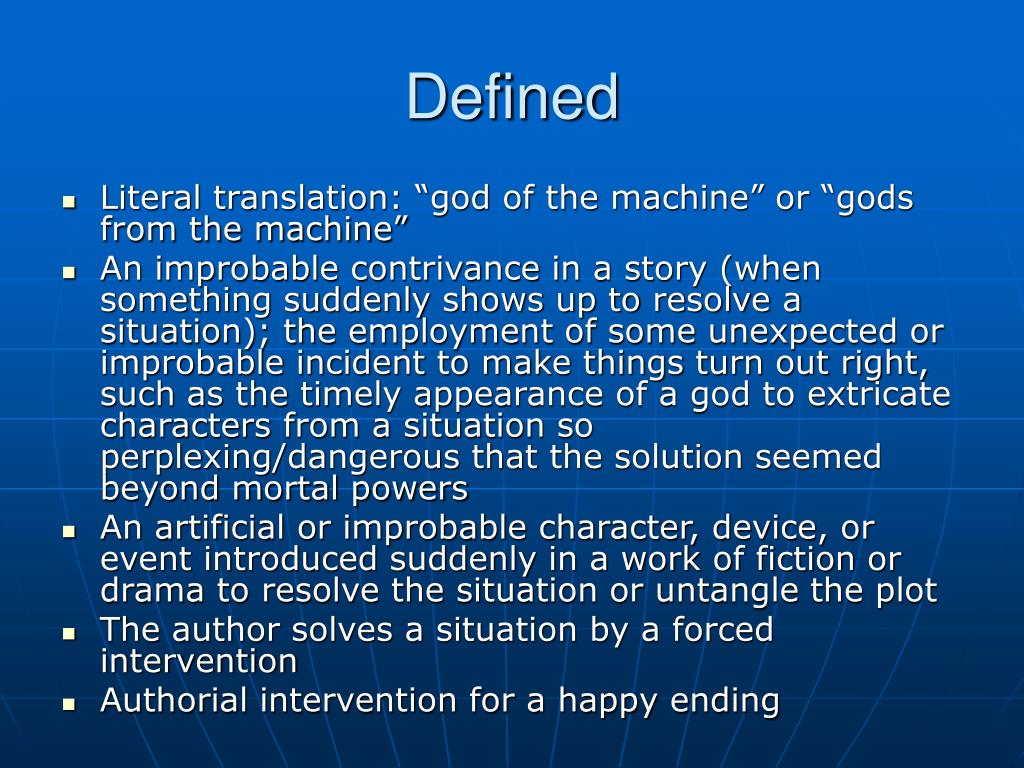
For example, in the final scene of Molière's Tartuffe, the heroes are saved from a terrible fate by an agent of the compassionate, all-seeing King Louis XIV - the same king who held Molière's career and livelihood in his hands. During the politically turbulent 17th and 18th centuries, the deus ex machina was sometimes used to make a controversial thesis more palatable to the powers of the day. John Gay uses it in The Beggar's Opera where a character breaks the action and rewrites the ending as a reprieve from hanging for MacHeath. Shakespeare uses the device in As You Like It, Pericles, Prince of Tyre, and Cymbeline. Modern theatrical examples Ĭharacters ascend into heaven to become gods at the end of the 1650 play Andromède They would have a feeling of wonder and astonishment at the appearance of the gods, which would often add to the moral effect of the drama. The device produced an immediate emotional response from Greek audiences. At the end, Heracles shows up and seizes Alcestis from Death, restoring her to life and to Admetus.Īristophanes' play Thesmophoriazusae parodies Euripides' frequent use of the crane by making Euripides himself a character in the play and bringing him on stage by way of the mechane.

In Alcestis, the heroine agrees to give up her own life to spare the life of her husband Admetus. A frequently cited example is Euripides' Medea, in which the deus ex machina is a dragon-drawn chariot sent by the sun god Helios, used to convey his granddaughter Medea away from her husband Jason to the safety of Athens. More than half of Euripides' extant tragedies employ a deus ex machina in their resolution, and some critics claim that Euripides invented it, not Aeschylus. Ancient examples Īeschylus used the device in his Eumenides, but it became an established stage machine with Euripides. The device is associated mostly with Greek tragedy, although it also appeared in comedies.


Aeschylus introduced the idea, and it was used often to resolve the conflict and conclude the drama. The machine could be either a crane ( mechane) used to lower actors from above or a riser that brought them up through a trapdoor. The term was coined from the conventions of ancient Greek theater, where actors who were playing gods were brought onto stage using a machine. Deus ex machina is a Latin calque from Greek ἀπὸ μηχανῆς θεός (apò mēkhanês theós) 'god from the machine'.


 0 kommentar(er)
0 kommentar(er)
